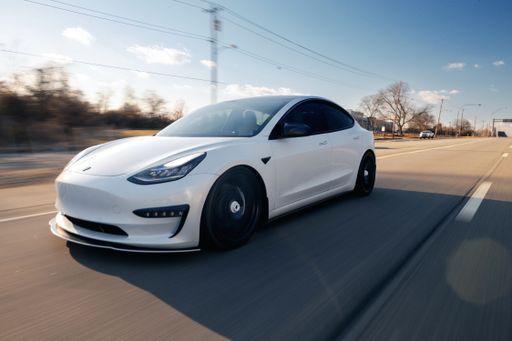Britain's BT to Convert Street Cabinets into EV Charging Points
BT, Britain's biggest telecoms group, plans to convert its street cabinets into electric vehicle (EV) charging points in a pilot project that could lead to 60,000 new charging points across the country. The first unit will be installed in East Lothian, Scotland, with further trials to follow. The shortage of EV chargers on Britain's roads is deterring potential EV buyers, according to BT's research. The government aims to increase the number of charging points to 300,000 by the 2030s.

BT's Pilot Project
BT is set to convert its street cabinets into EV charging points in a pilot project. This initiative aims to add 60,000 new charging points across Britain. The first unit will be installed in East Lothian, Scotland. BT plans to conduct further trials in different locations across the country.
The shortage of chargers is a significant barrier to the adoption of EVs. BT's research revealed that 38% of drivers would have already purchased an EV if charging infrastructure was more readily available. By repurposing its street cabinets, BT hopes to address this issue and encourage more people to switch to electric vehicles.
Currently, there are 53,906 EV charging points in the UK, according to Zapmap. The government aims to increase this number to 300,000 by the 2030s. BT's pilot project is a significant step towards achieving this goal.
BT's Approach
BT plans to retrofit its street cabinets to include EV charge points alongside the existing broadband service. This means no additional power connection is required, making the process more efficient and cost-effective. The cabinets used for current copper broadband services or those due for retirement will be repurposed for EV charging, depending on space and power availability.
According to Tom Guy, managing director of BT's start-up arm Etc, this charging solution is a crucial step in bringing EV charging closer to the customers and addressing the key barriers they face. BT is working closely with local councils in Scotland and across the UK to make EV charging more accessible to the public.
By leveraging its existing infrastructure, BT aims to provide a reliable and widespread network of EV charging points, making it easier for people to choose electric vehicles and contribute to a greener future.
Impact and Future Plans
The conversion of street cabinets into EV charging points is expected to have a significant impact on the adoption of electric vehicles in Britain. With more accessible charging infrastructure, potential EV buyers will be more inclined to make the switch. This will help accelerate the government's goal of reaching 300,000 charging points by the 2030s.
BT's pilot project demonstrates its commitment to 'connect for good' and contribute to a sustainable future. By repurposing existing infrastructure, BT is taking a proactive approach to address the challenges faced by EV drivers. Through collaboration with local councils and continuous innovation, BT aims to find solutions that benefit both the environment and its customers.
The success of the pilot project will inform future plans and potential expansion of the EV charging network. If proven effective, the conversion of street cabinets could be implemented on a larger scale, further enhancing the accessibility and convenience of EV charging across the UK.

